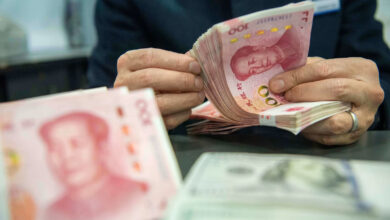We have never bothered to ask ourselves why a country like China has achieved an economic growth rate of 12 percent–the highest in the entire world.
Nor have we bothered to ask how China came to have the second largest economy in the world. Until a few months ago, Japan was in second position, and the most optimistic economists projected that China would replace Japan in 2012.
Strangely enough, China is a country with a vast population of 1.3 billion, ruled by a single communist party. In a one-party system, nobody dares question the party’s points of reference, and nobody can say they have a different view from that expressed by the one party.
My question is: How is it that China has achieved such growth? How has that country’s economy managed to compete with an economy as massive as that of the US, threatening to overtake it in 2020?
The answer lies in the establishment of special industrial zones. China’s industrial zones are able to compete against Singapore itself. In fact, when you visit these zones, you don’t feel like you are in a communist country. I visited one in Shanghai last year and it seemed to me more like part of the US, the world’s largest capitalist country.
I couldn’t help wondering how such a decidedly communist country as China–where a visiting foreigner, or even a resident diplomat, needs permission in order to have a satellite dish installed–could allow the establishment of such special industrial zones, which are almost disconnected from the rest of the country–in this case, a purely totalitarian one?
But the answer is easy. The country needs these industrial zones. In the zones, the free movement of capital generates job opportunities, and profits from investments are taxed. Taxes represent the main source of income for the state, which provides services to the people.
China is aware of the importance of investment, while in Egypt investors are viewed with a suspicious eye. So I say, an investor is innocent until proven guilty.
Translated from the Arabic Edition.




